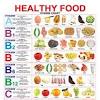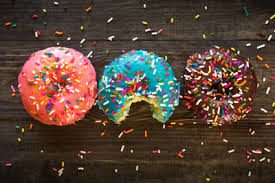Should you eat before a swim workout? You should eat where possible before your morning swim; especially if it’s a longer (one hour in duration) or a high-intensity session. The body uses carbohydrate stores for high-intensity work, and if training on an empty stomach you might find you tire quickly.
What is the best food to eat before swimming training? Good pre-swim foods that supply energy include porridge oats, wholegrain bread, pasta, sweet potatoes, peas and beans. For our swimmers who just want to feel energised and are after more exciting meals, then we recommend trying foods such as bagels, smoothies, yogurt, eggs and bananas.
What not to eat before swimming? What should you avoid eating before swimming? “You should avoid any foods that are known to cause gastrointestinal distress, including foods that contain excess fibre, fat, spices, alcohol, and caffeine,” says Dr Norton, as these foods are not conducive to exercise and may cause stomach upset, diarrhoea and sickness.
Should I eat before or after swimming? We recommend our swimmers eat at least an hour before their swimming lesson. If you swim too soon after eating, neither your digestive system nor your muscles will get the blood flow levels they need to work efficiently, and this increases the risk of developing indigestion, cramps, and sickness.
Should you eat before a swim workout? – Additional Questions
Can I eat a banana before swimming?
2) Bananas are an awesome source of potassium! Plus, they taste so good as well as giving you the boost of energy you need before swimming. Grab a banana on the way to the pool and see the benefits during your swim session.
Is it OK to swim on an empty stomach?
Debunking the Myth
Swimming right after you’ve had something to eat isn’t dangerous at all. The concern was that because digestion diverts some of your blood flow from your muscles to your stomach, swimming might somehow inhibit that necessary blood flow to the stomach, causing cramps so severe that you could drown.
What is the recommended time of eating after swimming?
Always eat within an hour of finishing your swimming routine. You should try and eat a high carb meal balanced with a good portion of proteins. Since your body takes longer to digest carbs, add yogurt, juice, or a banana to your meal. Stay away from spicy food after swimming, as it can affect your health badly.
Should I eat before swimming in the morning?
Assuming you have less than an hour in the early morning before hitting the pool, consider food that is mostly carbohydrate and lower in fat and fiber. Items such as fruit, fruit juice, fruit snacks, a piece of toast or waffle with jam, cereal (one that is lower in fiber), or applesauce are good options.
What should I do before and after swimming?
- Shower before you dive in. Take a good shower and soak yourself fully before you jump into a swimming pool.
- Wear sunscreen before a swim.
- Shower immediately after you get out of the pool/sea.
- Moisturise immediately after your post-swim shower.
- Do not lie in the sun to dry yourself.
Should you wait 30 minutes after eating to drink water?
Remember not to drink too soon before or after a meal as the water will dilute the digestive juices. Drink water an hour after the meal to allow the body to absorb the nutrients.
How much water should you drink a day to lose belly fat?
Drinking enough water is essential for our overall health, but it can also help us to lose belly fat. So, make sure to drink 8-10 glasses of water each day and watch your belly fat melt away!
Why should we not drink water while standing?
Since the water goes directly through, the requires nutrients and vitamins don’t reach the liver and digestive tract. This is because when you stand and drink water, it travels through the system really fast and you risk your lungs and heart functions. The oxygen levels also get disturbed this way.
When should you not drink water?
It’s important to drink enough water during the day, however, it can be disruptive if you drink directly before bed. Avoid drinking water or any other fluids at least two hours before sleeping to prevent waking up at night.
What happens when you drink water on an empty stomach?
Drinking water on an empty stomach helps in cleansing your bowels. It creates an urge to move the bowel and therefore helps to regulate your digestive tract. If you experience difficulty while passing motion or if you feel constipated, drink plenty of water as it helps in clearing the waste from your body.
Is it okay to drink water immediately after peeing?
Drinking water instantly just after urinating is good habit else this should avoid and wat are the health issue if followed with the same. Its fine if you drink water just after urination but you can also have water whenever you feel like drinking it.
When I drink water I immediately have to pee?
Urge incontinence occurs when an overactive bladder spasms or contracts at the wrong times. You may leak urine when you sleep or feel the need to pee after drinking a little water, even though you know your bladder isn’t full.
Why does my pee stink?
Some foods and medications, such as asparagus or certain vitamins, can cause a noticeable urine odor, even in low concentrations. Sometimes, unusual urine odor indicates a medical condition or disease, such as: Cystitis (bladder inflammation) Dehydration.
What to do when you need to pee but there is no bathroom?
Is peeing 20 times a day normal?
Regularly urinating more than seven times per day may be normal for some people and may not be a sign of a health problem. But the National Institute of Aging suggests talking to your doctor if you regularly urinate eight or more times.
How long can you hold pee?
A healthy bladder can hold about 2 cups of urine before it’s considered full.
Pee table.
| Age |
Average bladder size |
Time to fill bladder |
| Child (4–12 years) |
7–14 ounces |
2–4 hours |
| Adult |
16–24 ounces |
8–9 hours (2 ounces per hour) |
Why do I feel like I still have to pee after peeing?
Feeling as if you need to pee right after you pee is a symptom of a urinary tract infection. It could also happen if you consume bladder irritants like alcohol, coffee, or chocolate. Frequent urination can also be a symptom of conditions like interstitial cystitis or pelvic issues.



